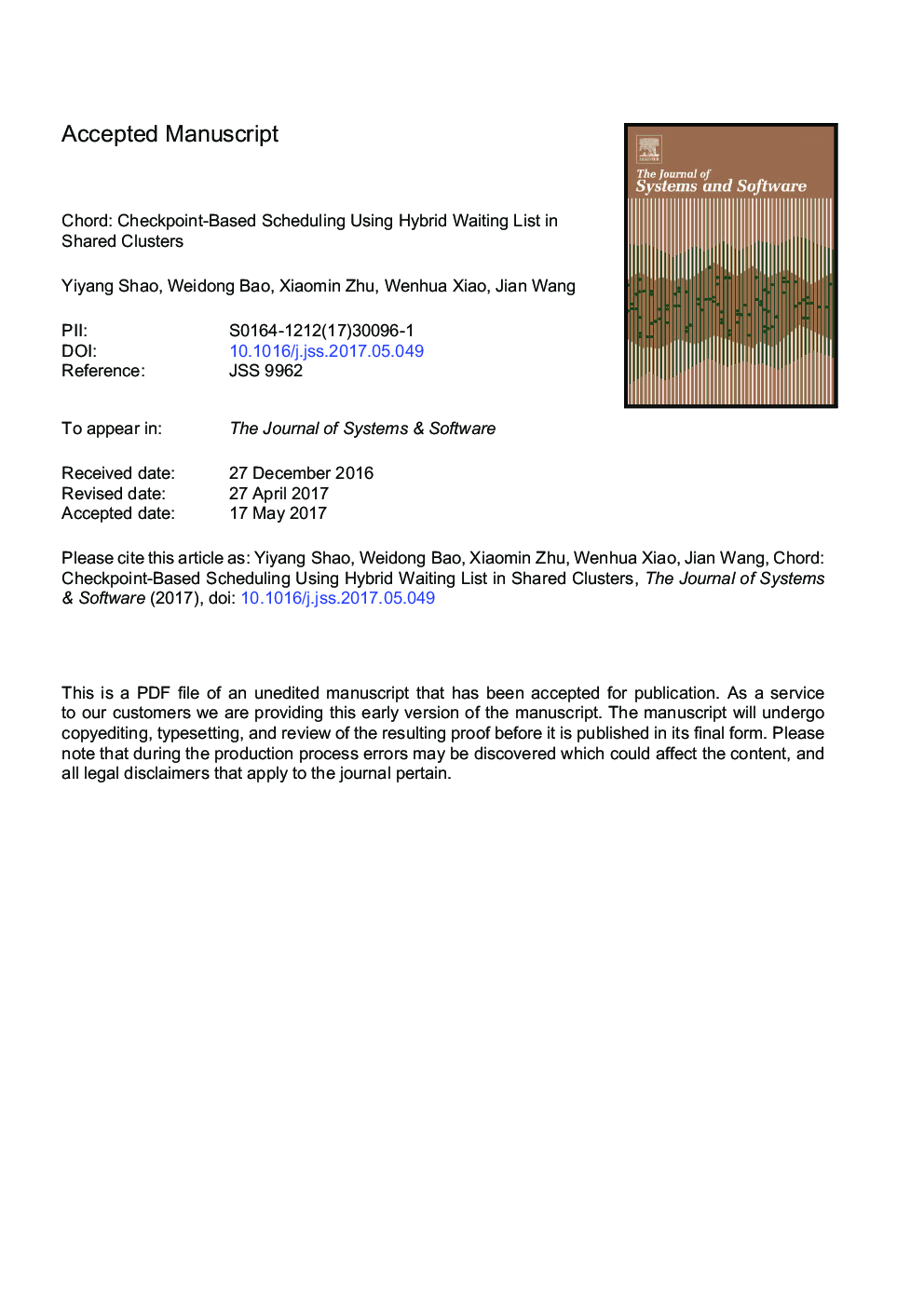| Article ID | Journal | Published Year | Pages | File Type |
|---|---|---|---|---|
| 4956401 | Journal of Systems and Software | 2017 | 35 Pages |
Abstract
Cloud platforms supported by shared clusters are getting increasingly effective. Numerous tasks are submitted into clusters by a variety of users. Cloud platforms usually assign tasks with different priorities based on different Quality of Services (QoS) chosen by users. High-priority tasks can be executed primarily. As a consequence, preemption frequently occurs in almost all the commercial cloud platforms, such as Google and Amazon cluster. Although kill-based preemption is adopted as an optimal solution for high-priority tasks, it severely harms low-priority tasks. Especially, during the peak time, some low-priority tasks may be preempted and restarted repeatedly resulting in consuming much more precious resources including CPU cores, RAM and hard drives. Thanks to the checkpoint technology that provides an efficient solution to addressing the preemption issue. However, using checkpoint blindly will cause more resource waste. To address this issue, in this paper, we propose a concept of hybrid waiting list that holds all unfinished tasks and makes the resumption of tasks regularly. We leverage the checkpoint technology and design a novel approach based on the hybrid waiting list named Chord (Checkpoint with hybrid scheduling method) which effectively improves the performance of shared clusters. Specifically, by checking the occupancy of resources periodically and making checkpoints for certain tasks, our approach can effectively reduce unnecessary checkpoints and improve the performance of the whole cluster, especially for low-priority tasks. Extensive simulation experiments injecting tasks from the Google cloud trace logs were conducted to validate the superiority of our approach. Compared with the ordinary priority scheduling methods adopt by several commercial clouds, the improvement of response time gained by our Chord can reach 18.94%.
Related Topics
Physical Sciences and Engineering
Computer Science
Computer Networks and Communications
Authors
Yiyang Shao, Weidong Bao, Xiaomin Zhu, Wenhua Xiao, Jian Wang,
